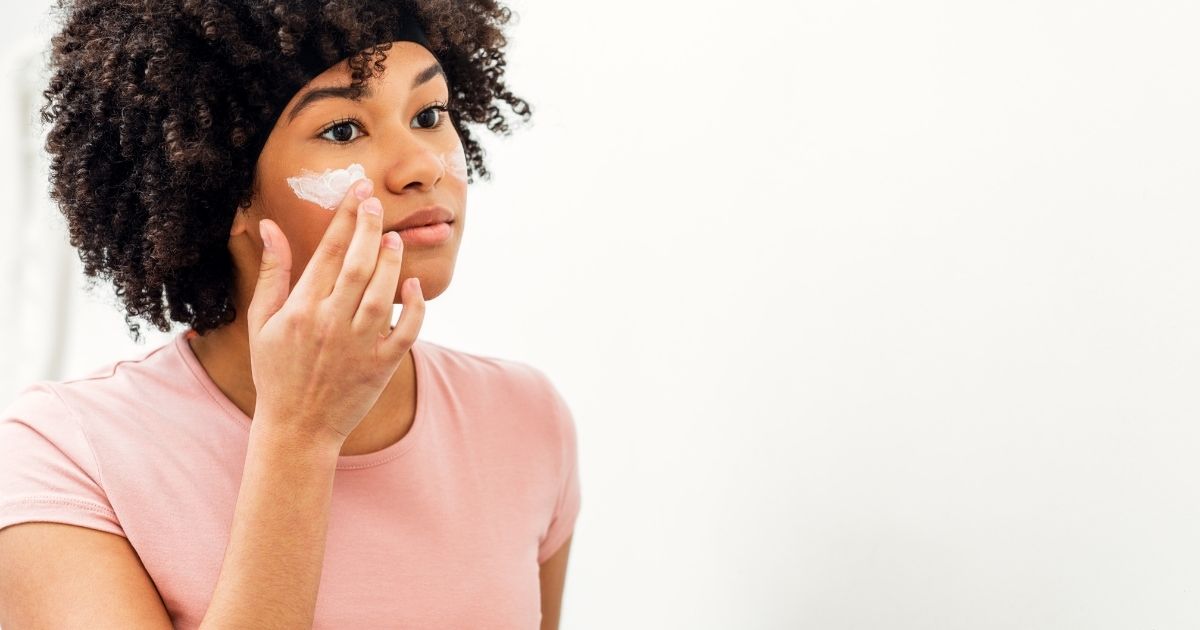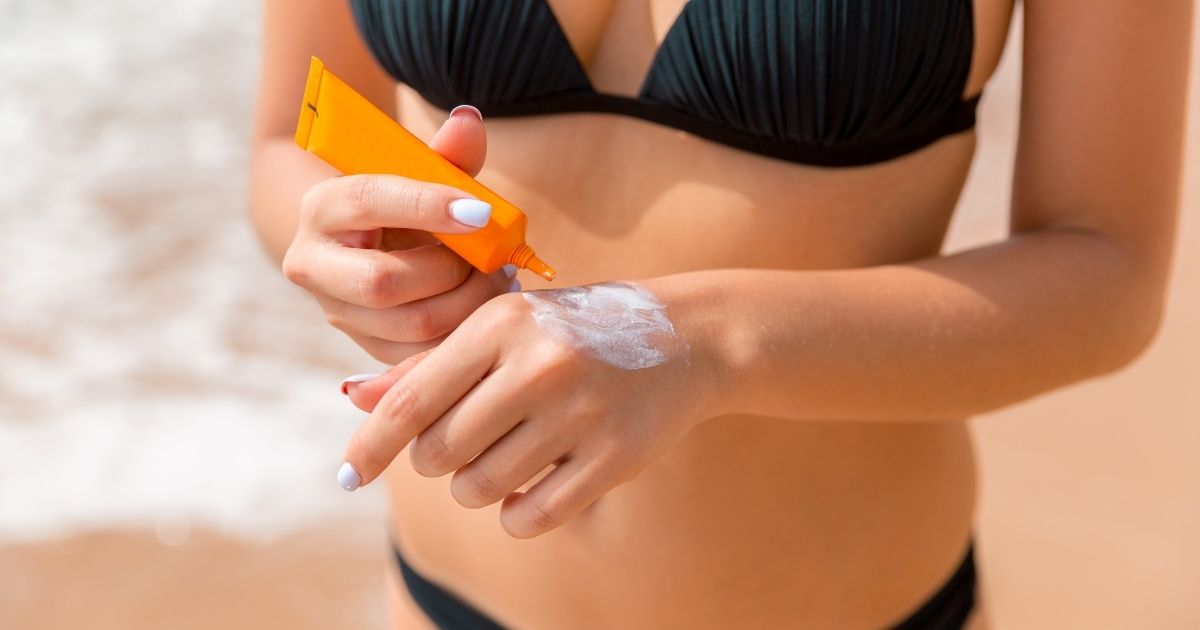Oily skin problems can be very frustrating and embarrassing, but they are manageable. The key to managing oily skin is to keep your pores clean, so your skin doesn’t overproduce oil. Cleansing twice a day with an oil-free cleanser will help reduce the amount of oils secreted by the sebaceous glands on the skin’s surface.
You should also avoid using any products containing alcohol or other drying ingredients that may irritate sensitive areas of your face like the eyes, mouth, and nose. Alcohol and other drying agents strip away the oil your natural sebaceous oils help protect. Read more to find out our top six ways to prevent oily skin!
1. Cleanse your skin in the morning and at night

To keep your skin healthy and free of things like acne, it is essential to cleanse with a suitable cleanser in the mornings and at night. Cleansing removes impurities that can cause breakouts or irritation.
Cleansing is an integral part of the daily routine and should be done twice a day, morning and night. Washing your face at night can help remove any impurities that might have accumulated during the day, such as dirt or excess oil. This helps keep your skin healthy and free of conditions such as acne.
The first step to take when cleansing your face is to use warm water, not hot or cold water. Using cool water will cause more bacteria to grow on your face because it closes up pores and slows down bodily functions. Once you have a clean washcloth, soak it in hot water for a few minutes, then wring it out before using it on your skin – if you don’t have a cloth, your hands will work just fine.
Your skin should be wet with water before you apply a cleanser, so use plenty of warm water on your face for about 30 seconds to loosen up the dirt and oil.
Using a good face wash is easy, but choosing the right one is also very important. Most cleansers contain chemicals called surfactants that are able to break down dirt or oil into little clumps that can be washed away. Make sure you choose a gentle cleanser that does not contain harsh, drying chemicals.
2. Use a moisturizer to keep your skin hydrated but not too greasy

Some people might think that moisturizing is unnecessary because they live in a dry climate or work in an office, but it’s essential to maintain your skin’s hydration. Moisturizing not only keeps your skin looking softer and enhances the appearance of wrinkles, but it also holds in moisture better than using lotion alone.
Moisturizing with creams or oils can make your pores appear bigger or break out more easily, so try using lotions instead. Over-moisturized skin is also prone to wrinkle formation because the skin becomes waterlogged and loses elasticity.
These lotions can be bought at most stores and can also be made at home using ingredients like coconut milk, cocoa butter, and more. Creams contain a high percentage of water and likely some other oils or butters that will help hold moisture in your skin.
If you choose to use oil on your skin instead, make sure it’s not too thick or oily because this will make your pores appear more pronounced and add to breakouts on the face, neck, and chest. If you want something thicker than lotion for extra dry areas on the body like your elbows or knees, there are ointments available that contain shea butter which is a thicker butter.
These will add extra moisture to your skin and make it appear more supple, but make sure to use them very sparingly under clothing.
3. Drink lots of water

Drinking lots of water is very important for your skin, as it helps to keep your skin hydrated. When you are dehydrated, your skin will start to show signs of being dry and dull. Drinking lots of water will help improve the texture of your skin. It can also have a positive effect on your complexion by helping to reduce dark circles and puffiness.
Drinking water is beneficial to reduce oily skin because it can help to flush out excess oil. For this reason, many people with acne choose to drink more water. However, drinking lots of water is not an effective acne treatment unless combined with other steps in your skincare routine.
Drinking water will also reduce the appearance of fine lines and wrinkles over time by keeping your skin hydrated and plump (think of how babies have perfect skin). Dehydration will cause your skin to lose its elasticity, which can make you look older. Drinking lots of water is a practical anti-aging step in your skincare routine.
4. Eat less processed foods

Sugars
Processed foods are a massive contributor to how oily your skin is. Sugar is one of the main culprits. It’s even worse for those on a high glycemic index diet, which are foods that are quickly converted into sugar by the body.
The more sugar you consume, generally, the more oil your skin produces. When it comes to processed foods, look at the ingredients list on food products. If there’s sugar listed as one of the first 3-5 ingredients and/or if corn syrup is listed as one of the first few ingredients, this tells you that a large amount of added sugars were used in the processing and preparing this food product – meaning it will likely boost sebum production and result in oily skin.
Trans Fat
Another ingredient to be mindful of when it comes to processed foods is trans fats. Trans fats are in “partially hydrogenated vegetable oils” and margarine, just at different percentages – ranging from small amounts in margarine up to nearly 100% in some ‘hard’ margarine. Partially hydrogenated oil is terrible for you because your body can’t completely break it down into energy, so instead, it stores the unused portion as body fat, and that’s not great for your overall health or your skin.
This all being said, ALL types of margarine should be avoided if you want to avoid oily skin (even if they’re labeled as healthier options like soy butter and coconut butter). If you’re cooking with regular margarine or buying pre-made foods such as pre-cooked meals and pastries, be mindful of this ingredient.
Greasy & Fried Food
Now that you know how to avoid processed foods in your diet for the sake of oily skin let’s move on to greasy & fried foods. Fried food is typically pretty high in fat, which may not directly cause oil production, but it can make it worse since oil creates a protective layer over the skin that traps all that ‘stuff’ back into your pores. These are also absorbed into your bloodstream more easily when they’re consumed, again – trapping everything back under your skin where it can cause breakouts.
As an added bonus, gyms are full of people who are addicted to bacon double cheeseburgers so that you can work out the excess calories through the power of greasy-induced perspiration.
Some Types of Dairy
If there was one thing I could recommend to someone to avoid in order to prevent oily skin, it would be dairy products. (Not all dairy, but most – especially if you’re not at least part goat.) The primary cause is that cows are given hormones that end up in their milk, and these tend to affect the skin’s PH levels in a way that creates more oil production. Skim & 2% milk has even been shown to have this effect because it contains less fat than whole milk, but there are still slightly elevated levels of hormones present.
This may be why full-fat yogurt seems to have an inverse relationship with oily skin – meaning people who consume full-fat yogurt tend to have less oily skin. The best type of milk would be goat’s milk because farmers don’t typically use hormones when raising goats. This doesn’t necessarily mean you should drink an entire gallon of it, though, since that much dairy can increase your calorie intake.
5. Avoid using makeup that can clog pores

Clogged pores are one of the factors that can cause oily skin problems. While applying makeup to cover blemishes, you must be very cautious in choosing the type of products that are applied on your face since some types of cosmetics contain ingredients that will only make your skin oilier.
It is recommended for people with oily skin types to use water-based makeup products instead of oil-based ones because these two have different chemical compositions. The main difference between these two is that water makes your skin more thirsty while oil can block or clog pores – making them dirtier than before.
To prevent this problem from happening, it is best advised for you to cleanse your face daily using a cleanser made especially for removing excess oil.
Related: How to Clean Your Skin Before Shaving
Water-based makeups are recommended for people with oily skin because they contain ingredients that will not make your skin oilier. The main difference between the two is that water will make your skin more thirsty, while oil can clog pores and make them dirtier than before. To prevent this from happening, it is best to cleanse your face daily with a cleanser made especially for removing excess oils.
6. Wear sunscreen every day, even on cloudy days

The problem with only wearing sunscreen on sunny days is that the sun rays are just as harmful to your skin when it’s cloudy. If you spend most of your time indoors, you can still be bombarded by UV rays from the sun, even if it’s overcast outside because the windows in your building will let through sunlight. Sunscreen can prevent oily skin by blocking the UV rays that cause it, so be sure to wear it every day.
UV rays cause oily skin by affecting the sebaceous glands and increasing oil production. It also makes pores easier to clog and leads to breakouts and blackheads that can be especially noticeable on your forehead and nose.
Wearing sunscreen will prevent oily skin by protecting your skin from UV rays that can trigger breakouts and oily skin.
Get protection against UV rays by wearing sunscreen every day!
FAQ:
What causes oily skin in males?
Oily face men is a bothersome and embarrassing problem for many men. The male hormone androgen makes the sebaceous glands more sensitive to normal male sex hormones. This causes the gland to produce an excess of oil (sebum) which gives rise to oily skin.
What causes oily skin in women?
A common cause of oily skin in women can be hormones. Hormones may overstimulate oil production, which worsens during puberty and pregnancy and lessens as estrogen levels diminish after menopause.
Males produce the same type of sebum as females; however, males tend to find greater satisfaction from physical activity than females do. The joyous feeling that comes with physical activity sheds off stress hormones that are known to increase rates of oil production.
During puberty or pregnancy, an overproduction of progesterone relative to estrogen is another common culprit for excessive perspiration and resulting acne.
Is oily skin bad?
Excess oil on your skin can be really frustrating – it can cause acne, clogged pores, whiteheads, and blackheads. Although oily skin is not necessarily bad or abnormal (in fact, about 35% of people worldwide have an oilier complexion), you may feel like your appearance is marred because of excess shine on the nose and cheeks.
Next: 6 Tips to Prevent Razor Burns on Neck with an Electric Razor





2 Responses
Comments are closed.